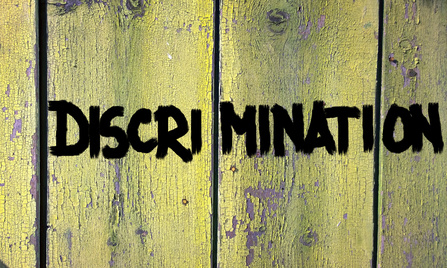But He Said it Too! Does Employee’s Use of Racial Epithet Negate Discrimination Claim?

the situation
An employee asserts that he has been subjected to a hostile work environment, partially based on claims that other employees and supervisors regularly used racial epithets in his presence. But, you are aware that the complaining employee had been known to use those very same terms at times. Does that affect his claim of discrimination?
the ruling
Maybe not, according to what a federal court in Chicago decided last week. Dapkus v. Chipotle Mexican Grill, Inc., Case No. 15 C 6395 (N.D. Ill. January 4, 2017). The court rejected Chipotle’s claim that it was entitled to summary judgment on plaintiff’s claim of hostile work environment based on testimony that the plaintiff had also occasionally used racial epithets.
Anthony Dapkus was an employee of a Chipotle in the South Loop neighborhood of Chicago. Chipotle maintains a “Respectful Workplace Policy,” which includes an equal employment opportunity policy, code of conduct, and anti-discrimination, harassment, and sexual harassment policy.
Dapkus claimed that during his employment, racially offensive terms were used on a regular basis by both African American and Latino employees. He asserted that these terms were used not only by co-workers, but by those in management positions, including the general manager of the restaurant in which he worked. Dapkus claimed that he told the managers to stop using the offensive terms, specifically the “n word,” but that the use of the term continued. Dapkus quit for unrelated reasons, but ended up filing suit under Section 1981. One of his claims was that he was subjected to a hostile work environment, based in part on the racially discriminatory epithets.
Chipotle argued that Dapkus could not assert a claim against it because he could not show that the alleged harassment was unwelcome. Chipotle argued that Dapkus “engaged in behavior similar to that which he now claims was unwelcome and offensive” because he was known to have used the racially offensive terms about which he complained himself, along with other offensive terminology (such as “bitches” for women). There was also testimony presented by Chipotle that the terms were never used in a harassing manner or meant to be derogatory. Dapkus had admitted that he had used the “n word” previously, but in a joking way with his “fellow African Americans.” Dapkus testified that he had not ever used the word at work, and Chipotle did not present any evidence to the contrary. Furthermore, Dapkus testified that he complained to a number of managers about the use of the term.
Under these circumstances, the court found that a reasonable jury could find that the harassing language was, in fact, unwelcome, particularly because of Dapkus’s complaints about the language.
the point
Employers are generally sensitive to the importance of maintaining a workplace free from racially offensive terminology. But it is important to keep in mind that even where employees might claim that certain terms are only being used in a joking manner, enforcement of policies prohibiting the use of this type of language is advisable. The fact that an employee has been known himself to use a certain term does not mean that his complaints about harassment based on similar conduct won’t have any traction.

